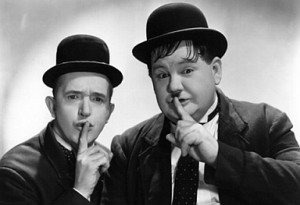I was listening to Mayor Michael Bloomberg’s remarks from the 9/11 site this morning on the radio, where he announced the official opening of the National September 11th Memorial.
The baby was spraying the room with her sweet potatoes and JP was busily constructing something arcane from Star Wars Legos. This passage caught my attention, though, despite the fact that I hadn’t had coffee yet:
“Already, there is a generation of children growing up who were too young to understand what happened on 9/11 – and they may be too young to understand what the news of Bin Laden’s death means. But it is our obligation in building the museum to ensure that the story of 9/11 is never forgotten.”
Fair enough, and well-spoken, at least for this great city’s typically taciturn Hizzoner. But does that mean I have to discuss these events with my children? Obviously not with Ellie–she’s too young. But JP might be made to understand. So far I’ve decided not to. What good will it do? He will come to fear the world on his own, thank you very much, and he will also learn to fear parts of it through me (“if you cross the street with out looking you will be hit by a car”). But the Big Fears, the abstract ones? Do I really have a parental responsibility to explain those things to him? I truly don’t know, although my instincts tell me no.
No one in my family died on 9/11, thankfully. But my father lives in near the site of the attack, and his office was in the World Financial Center, which is across the street and was heavily damaged. Luckily, he was in New Jersey for work on 9/11. He was, however, in the Twin Towers in 1993 during the first attack. He walked out of the building with the rest of the people, scared, coughing, and bewildered. For him the Big Fear is a small one, too (he was also in Atlanta in 1996 when the Olympics were bombed–coincidence?).
I remember as a kid being pretty well convinced that I would die in a nuclear bomb attack. That was a representation of the time and the final remnants of Cold War paranoia. I also remember distinctly noticing that belief disappear. Just like that. One day it seemed reasonable to think the Soviet Union was going to blow me up, and the next day it didn’t.
I don’t entirely know where I’m going with this post, I’m afraid. Bad things exist in the world, and our children must be prepared to confront them, or at the very least, learn ways to live with them. Just not yet.


Why exactly must they know? So political pundits can use them as tools for their own purposes? There’s no real lesson to be learned from 9/11, other than “bad people suck”. Unless it’s going to be about how giving foreign aid to rebel groups can have unintended consequences (although I somehow doubt that’s going to be in the museum).
What exactly would they have kids learn from this?
Kids should learn history, but I don’t think Osama bin Laden is a privileged topic in this. Well, he is — everybody will talk about him a lot for a long time, and your kids will learn somebody’s version of events from the world around them. I think you can safely wait until that’s at least imminent before you make sure they have access to your understanding of things.
There is so much history to learn, and so much of it is terrible, but there’s also a lot of history that enlightens and inspires. I wanted my kids to know about the Eight Hours Movement and the Civil Rights Movement and the progress of science. I wanted them to know that for every terrible thing, there were people getting together to make a coordinated struggle to make things better. So I emphasized those things. I don’t think I did too badly. My kids know a lot about what has happened in the world, are able to draw their own conclusions (I know this because we don’t always agree perfectly but their opinions are always something I can respect), and also to adjust their actions in the world to add weight to the effort tio make things better.
In short: I suggest you play it by ear, make a habit of telling stories in general, and respond to the questions that arise, asked or not, and you’ll do fine.